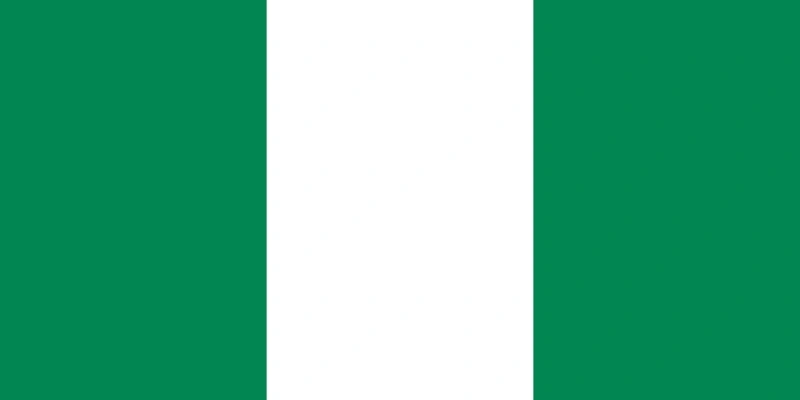Lagos (Nigeria) - geography.
Publié le 04/05/2013
Extrait du document

Lagos (Nigeria) - geography. I INTRODUCTION Lagos (Nigeria), city in southwestern Nigeria, in Lagos State, located on the Bight of Benin (an arm of the Atlantic Ocean). Lagos is Nigeria's largest city, chief port, and principal economic and cultural center. It served as Nigeria's capital until 1991, when the seat of federal government was moved to Abuja, in central Nigeria. II DESCRIPTION The Lagos metropolitan area spreads over much of Lagos State (3345 sq km/1292 sq mi), which is located on four principal islands and adjacent parts of the Nigerian mainland. The islands are connected to each other and to the mainland by bridges and landfills. Major sections of the city include the old city, which now serves as the commercial district, on western Lagos Island; Ikoyi Island, situated just east of Lagos Island and joined to it by a landfill; Apapa, the chief port district, located on the mainland; residential Victoria Island; and industrialized Iddo Island. Important mainland suburbs, incorporated as part of the city in 1967, include Ebute-Metta, Yaba, Suru Lere, Ajegunle, Shomolu, Agege, Mushin, and Ikeja. III POPULATION AND CULTURE Lagos has a very diverse and fast-growing population, resulting from heavy and ongoing migration to the city from all parts of Nigeria as well as neighboring countries. In 1992 Lagos had an estimated population of about 1,347,000. The population of its metropolitan area was about 10.1 million in 2003. The United Nations predicts that the city's metropolitan area, which had only about 290,000 inhabitants in 1950, will exceed 20 million by 2010, making Lagos one of the world's five largest cities. The Yoruba, an African people inhabiting southwest Nigeria, constitute the city's principal ethnic group. English is the most commonly used language, but Yoruba and other Nigerian languages are also spoken. Lagos is an important center of Nigerian intellectual and cultural life. The University of Lagos (1962), Yaba College of Technology (1948), Lagos State University (1983), and Lagos State Polytechnic (1977) are located in the city, as are several major research institutes. Lagos is also the site of the National Library of Nigeria (1964) and the National Museum (1957), which has collections in archaeology, ethnography, and traditional art. The National Theater (1976) stages plays, dance performances, and music concerts, and also houses collections of contemporary Nigerian art. IV ECONOMY Lagos is Nigeria's leading port, particularly for imports of consumer goods, foodstuffs, motor vehicles, machinery, and industrial raw materials. Its export trade in timber and agricultural products such as cacao and groundnuts has declined since the early 1970s. More than half of Nigeria's industrial capacity is located in Lagos's mainland suburbs, particularly in the Ikeja industrial estate. A wide range of manufactures are produced in the city, including machinery, motor vehicles, electronic equipment, chemicals, beer, processed food, and textiles. Lagos is the western terminus for the Nigerian railway system and is linked by rail and road to Ibadan, Kano, and other major Nigerian cities. Murtala Muhammad International Airport is located in the suburbs northwest of the city center. Lagos's rapid, mostly unregulated growth, coupled with the challenges of its fragmented geography, have resulted in chronically congested traffic conditions on the city's roads. Despite this, there is relatively little transportation by water between the islands and mainland sections of Lagos. V HISTORY The site of an old Yoruba settlement named Eko, Lagos was visited by Portuguese traders in 1472 and named for a port in Portugal. The Portuguese developed Lagos as a major center for the trade of goods and slaves. The city served in this capacity until 1861, when it was annexed by the British, who by this time opposed slavery. The British governed Lagos as a crown colony. British rule was opposed by several local Yoruba states, and a series of conflicts in the 1870s and 1880s hampered British trade with the interior. The British conquered these states in the late 1880s and early 1890s, expanding the territory of the colony. In 1914 Lagos became the capital of the Colony and Protectorate of Nigeria. In 1960 the city became the capital of independent Nigeria. As Nigeria's oil industry boomed in the early 1970s, Lagos began developing rapidly. The population of Lagos ballooned as migrants from all over Nigeria and from neighboring countries flocked to the city. In accordance with a plan first announced in 1976 to combat Lagos's explosive growth, the seat of the Nigerian federal government was moved from Lagos to Abuja in December 1991. However, much of the federal bureaucracy continued to operate out of Lagos. Microsoft ® Encarta ® 2009. © 1993-2008 Microsoft Corporation. All rights reserved.
Liens utiles
- Lagos (Nigeria) - geography.
- Lagos (Nigeria) - geographie.
- Lagos (Nigeria) - geografía.
- Shell Nigeria
- Port Harcourt, ville du Nigeria, chef-lieu de l'État des Rivières.































